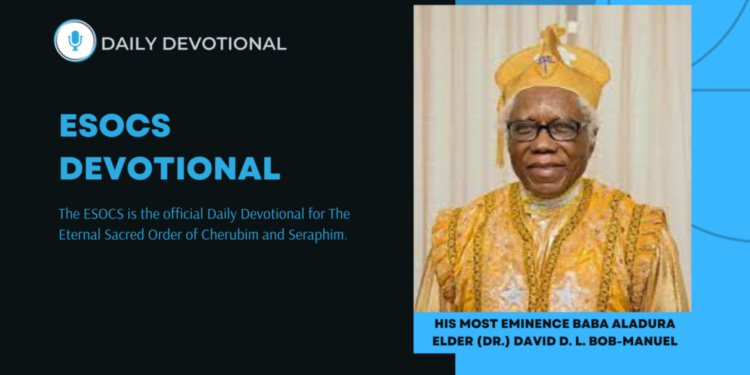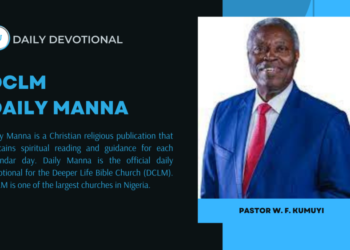ESOCS Devotional 20 October 2024 – A Corporate Grief
MEMORY VERSE: “Your glory, O Israel, is slain on your high places! [This is referring to the mountains or hills of Gilboa, where the Israelite army was defeated]. How the mighty have fallen!”2 Samuel 1:19
TEXT: 2 SAMUEL 1:17-27
Then David lamented with this lamentation over Saul and over Jonathan his son, 18 and he told them to teach the children of Judah the Song of the Bow; indeed it is written in the Book of Jasher:
19 “The beauty of Israel is slain on your high places!
How the mighty have fallen!
20 Tell it not in Gath,
Proclaim it not in the streets of Ashkelon—
Lest the daughters of the Philistines rejoice,
Lest the daughters of the uncircumcised triumph.
21 “O mountains of Gilboa,
Let there be no dew nor rain upon you,
Nor fields of offerings.
For the shield of the mighty is cast away there!
The shield of Saul, not anointed with oil.
22 From the blood of the slain,
From the fat of the mighty,
The bow of Jonathan did not turn back,
And the sword of Saul did not return empty.
23 “Saul and Jonathan were beloved and pleasant in their lives,
And in their death they were not divided;
They were swifter than eagles,
They were stronger than lions.
24 “O daughters of Israel, weep over Saul,
Who clothed you in scarlet, with luxury;
Who put ornaments of gold on your apparel.
25 “How the mighty have fallen in the midst of the battle!
Jonathan was slain in your high places.
26 I am distressed for you, my brother Jonathan;
You have been very pleasant to me;
Your love to me was wonderful,
Surpassing the love of women.
27 “How the mighty have fallen,
And the weapons of war perished!”
Read Other ESOCS Devotional Here
Join me as I read (vv. 19-25). Now, notice how we find the same phrase at the beginning and end of this section: “How the mighty have fallen!” And then, moving in from either end, we find a reference to women, either rejoicing or weeping, referring to the Philistine women in the beginning (v 20) and to the Israelite women at the end (v 24). Now, it is very clear that this song of lament is focused not on every warrior who fell on Mount Gilboa, but on the two most important casualties: Saul and Jonathan. So, we might conclude that David wanted this lamentation taught and passed on because he wanted everyone to know how much he respected and revered Saul and Jonathan. Or we could take that one step further and say that David was wanting everyone in Judah, and in the coming generations, to also respect and revere Saul and Jonathan; to honour their memories.
But while all of that might be true, I think the truly foundational purpose in creating, teaching, and preserving this song of lamentation is hinted at in the opening words: (v 19) “Your glory, O Israel, is slain on your high places!” Who is Israel’s glory? Saul and Jonathan! So, when these men were cut down, Israel’s glory and honour were cut down. Isn’t this why David wrote about not publishing this news among the Philistines? Because they will exult, they will rejoice over Israel’s defeat, and over the defeat of Israel’s God! Don’t we already know this about David, that he had a heart for God’s honour. Look back to I Samuel 17. Look at verse 26. These are the very first words that David actually spoke in the Bible, and they were spoken in the context of another battle with the Philistines: “And David said to the men who stood by him, “What shall be done for the man who kills this Philistine and takes away the reproach from Israel? For who is this uncircumcised Philistine, that he should defy the armies of the living God?” (1 Samuel 17:26).
Now, read (vv. 45-47). David stood against the Philistine champion many years earlier in order that shame might not be brought upon God’s people. But now it has. Israel’s glory, her king and her prince, have been cut down. This song was not about revealing the true character of Saul, the man who selfishly sought David’s life, the king who stubbornly resisted God’s will. No, this song was about revelling in Saul’s successes and his military prowess. “How the MIGHTY have fallen!” And it is this corporate grief that must be cultivated grief. God’s people must learn to grieve when God’s name is reproached when his leaders are overpowered by the enemy.
- Have you ever defended the integrity of God’s name in any dishonourable circumstance?
- Father, I need the grace to fight for that which edifies your name, as David did.
Further Reading: Isaiah 35:7-end; Matthew 11:1-19; Revelation 22:1-7
ESOCS Devotional 20 October 2024
















